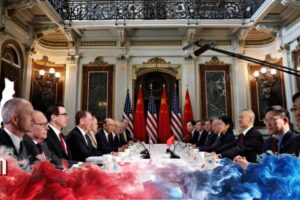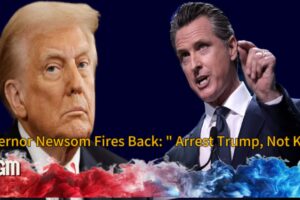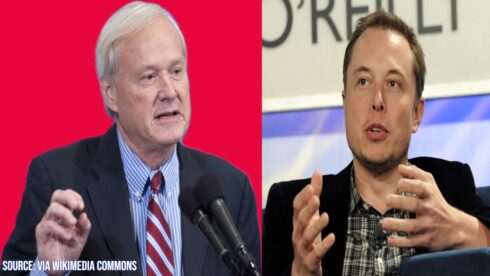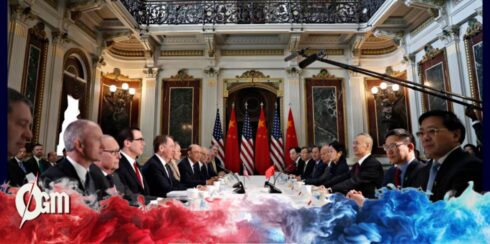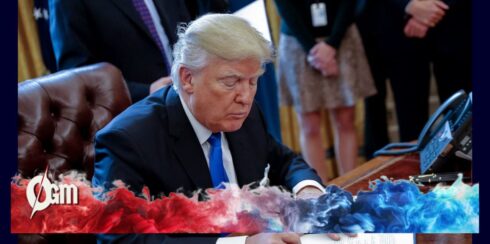Chris Matthews, a respected political commentator, took aim at billionaire Elon Musk during a passionate segment on MSNBC, accusing him of meddling in government without understanding its foundational principles. Chris Matthews labeled Musk a “clown” and a “fool,” arguing that his actions threaten the stability of the U.S. government. Highlighting Musk’s business achievements, Chris Matthews dismissed the notion that success in entrepreneurship translates into political competence.
“Musk is an idiot. He may be a genius at making money, but we have to kill this habit of thinking everybody who knows how to make money with e-cars somehow knows something about civics,” Chris Matthews said. The commentator pointed out Musk’s failure to grasp basic legislative processes, referencing Howard Baker’s insight that effective governance requires a firm understanding of majority votes and coalition-building.
Musk Lacks Political Savvy, Says Chris Matthews
Chris Matthews did not hold back as he lambasted Musk for his perceived ignorance of governmental operations. “This clown knows nothing about government,” Matthews said. While acknowledging Musk’s business acumen, Chris Matthews emphasized that wealth does not equate to political competence.
The political commentator echoed sentiments shared by Senator Bernie Sanders, stating, “They make money? Fine, but stop running the United States government.” Matthews suggested that Musk’s attempts to influence politics are not only misguided but harmful, framing him as a liability rather than an asset to the nation’s democratic processes.
Criticism of Musk’s Role in U.S. Politics Intensifies
Chris Matthews argued that Musk’s involvement in American politics is emblematic of a broader issue where billionaires assume they have the expertise to govern. “He doesn’t know how to get 218 votes in the House of Representatives, which is the name of the game,” Matthews said, pointing to Musk’s inability to form coalitions or navigate congressional dynamics.
Drawing from his experience with Speaker Tip O’Neill, Matthews stressed the importance of understanding the legislative process. He urged Musk to stay out of politics, asserting that his wealth and influence do not translate into effective governance or policy-making expertise.
Trump and Musk: A Tense Alliance?
In his critique, Chris Matthews speculated on the relationship between Elon Musk and former President Donald Trump, suggesting that Trump might be using Musk as a pawn in a larger political strategy. “I think Trump would like to get rid of his new dancing partner,” Chris Matthews remarked, implying that Musk’s political maneuvers could backfire.
According to Chris Matthews, Trump’s alleged plan involves allowing Musk to damage his own credibility through political missteps. “He can’t put together a coalition,” Matthews said, highlighting Musk’s inability to achieve meaningful political outcomes. This speculation underscores the precariousness of Musk’s position in American politics.
Chris Matthews: Musk Represents the Worst of America’s Elite
Beyond Musk’s political incompetence, Matthews characterized the billionaire as a symbol of America’s growing plutocracy. “He represents the very worst this country has to offer,” Matthews said, criticizing Musk’s assumption that wealth confers the right to wield political power.
Matthews framed Musk as a “toxic force” in U.S. politics, arguing that his actions exemplify the dangers of allowing billionaires to influence democratic institutions. The commentator called for a separation between economic success and political authority, warning against the consequences of unchecked influence by the ultra-wealthy.
Public Reaction to Chris Matthews’ Comments
Matthews’ fiery critique has sparked widespread debate, with many echoing his concerns about Elon Musk’s role in politics. Supporters of Matthews view his statements as a necessary rebuke of billionaires meddling in governance, while critics argue that his comments were overly harsh.
As Musk continues to polarize public opinion, Matthews’ remarks have added fuel to the ongoing discussion about the influence of wealth in American democracy. Whether seen as a bold stand or a divisive rant, Matthews’ critique has underscored the complexities of balancing economic power with political accountability.


